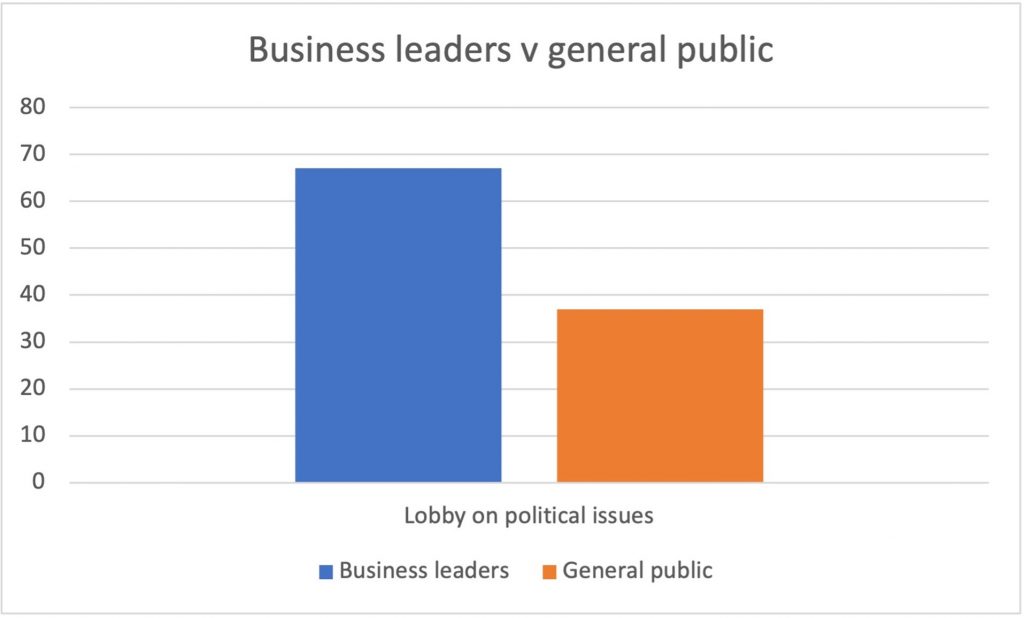Terry Smith, chief executive of investment management company, Fundsmith, began his January 2022 letter to investors, ‘This is the twelfth annual letter to owners of the Fundsmith Equity Fund.’ Pretty routine stuff one might think.
Except.
Unilever was the second worse performing stock in the Fund. Smith did not hold back:
“Unilever seems to be labouring under the weight of a management which is obsessed with publicly displaying sustainability credentials at the expense of focusing on the fundamentals of the business. The most obvious manifestation of this is the public spat it has become embroiled in over the refusal to supply Ben & Jerry’s ice cream in the West Bank. However, we think there are far more ludicrous examples which illustrate the problem. A company which feels it has to define the purpose of Hellmann’s mayonnaise has in our view clearly lost the plot. The Hellmann’s brand has existed since 1913 so we would guess that by now consumers have figured out its purpose (spoiler alert — salads and sandwiches).”
Is Terry Smith correct?
There are a number of complexities in coming to a view on the matter, not least, that despite his tirade, Terry Smith goes on to say that the fund retains its holding in Unilever because despite the weak performance he believes that the company has strong brands and distribution and will triumph in the end. Smith also contradicts himself in his example. He complains about an obsession with sustainability but then gives an example of political lobbying.
Smith has strong point yet manages to mix up his responses.
Here at CEME we have recently undertaking an extensive poll / survey of various audiences including the general public, business leaders, church leaders and those of faith across a wide range of business, economic and ethical issues. Savanta ComRes polled across several audiences between 10th May 2021 – 5th August 2021 with the following samples:
The full analysis of this survey will be published in the next few weeks but there is one aspect of these findings that reveal exactly why Smith is both right and wrong at the same time (at least in the eyes of the public at large).
The general public do not want political campaigning and lobbying by business.
In this case Terry Smith’s point about the purpose of Hellman’s is bang on the nail. The public want mayonnaise on their sandwiches and salads, as he puts it. The public want high quality goods and services – whether the mayonnaise or tasty ice cream from Ben and Jerry’s
Furthermore, Smith is onto something when he is talking about the management. The disparity of the views of business leaders compared to the general public is extraordinary. Approximately 67% of business leaders support lobbying or advocacy on political issues by business. Among the general public this drops to just 38% as shown in the chart below.
Amongst the over 55s support for political lobbying fell to a mere 28%.
This is one example of business losing sight of its basic purposes – the public simply want the delivery of quality goods and services. Our survey revealed several more, to be revealed when we publish the full analysis!
The position is even more interesting when we considered the response by business leaders according to size of company. For those in companies with more than 1,000 employees the percentage of business leaders supporting political advocacy and lobbying rose to an astonishing 79%.
What on earth do big businesses think they are doing?
This is also an example of how an elite becomes alienated from the wider community and public. Business leaders seem to have lost sight of their actual job in the market. Please, please, just deliver the mayo and the ice cream!
At this point we might conclude that Terry Smith is right and business must cease its lobbying on politics, environment and sustainability. Not quite.
The public distinguish between political and environmental activism
One of the fascinating things about this research is a clear distinction in the public mind between political lobbying and environmental concerns. The public are with Terry on the politics, but not on the environment.
In overall terms the results show substantial support for business concern for the environment and action on climate change. The results in these areas were as follows:
- – For the general public, 76% argued that business should be concerned for the environment and 65% that business should be active in tackling climate change.
- – Amongst business leaders, these figures were 83% and 72% respectively, higher, but not significantly different as with the political lobbying.
- – Interestingly concern for the environment and climate when analysed for age goes the opposite way to political lobbying – 85% of the over 55s think business should be concerned for the environment. Remember the figure for this group on political lobbying – 28%. An extraordinary gap.
Why the disparity?
There are two reasons why this might be so.
- First, the arguments and concerns about environment and climate have cut through. The concern is widespread and extensive and across all audiences.
- Second, concern for environment and climate have been decoupled from political lobbying. In other words, sustainability, environment and climate are no longer viewed by the general public as political issues.
Terry Smith then was partially right. Too much obsession with social purpose and politics is not what the general public want and alienates business from the very people it is intended to serve (in the sense that if business does not supply the goods and services in the market at a price determined by supply and demand, there will be no profits, not for shareholders or anybody else). As Oscar Williams-Grut, City editor of the Evening Standard put it, “sometimes mayonnaise is just mayonnaise”.
Yet, Terry also missed a point. By linking his message about politics with the environment he failed to notice the sea change in opinion which has taken place. Drop the politics, but the public do want business to have a wider concern, not least in terms of stewardship of the environment for the benefit of all.
 Dr Richard Turnbull is the Director of the Centre for Enterprise, Markets & Ethics (CEME). For more information about Richard please click here.
Dr Richard Turnbull is the Director of the Centre for Enterprise, Markets & Ethics (CEME). For more information about Richard please click here.



